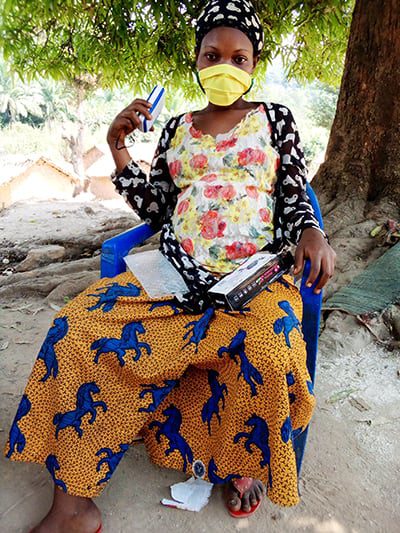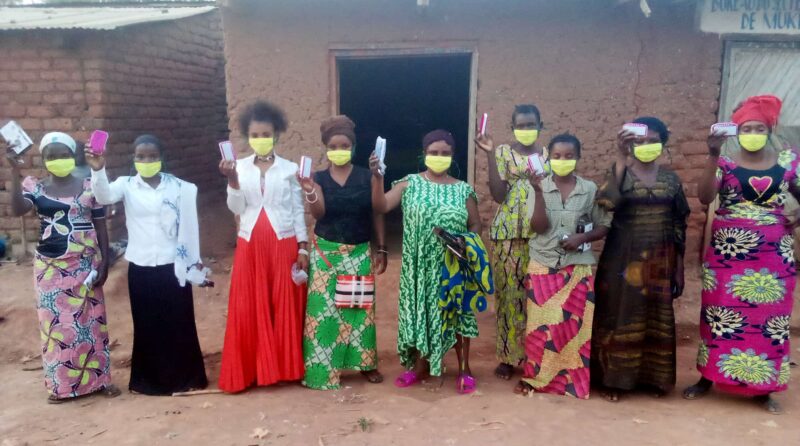Action for Vulnerable Women and Children (ASFEV) in the Democratic Republic of Congo (DRC) received funding from Internews’ Rapid Response Fund to provide information about the prevention and spread of COVID-19 to community residents in their local language in the Fizi territory of Sud-Kivu province.
To escape from the virus, some families in rural areas of DRC have moved out of their houses to live in the fields, even though that means exposing themselves to other risks such as mosquito-borne illnesses or attacks from local armed groups. It is difficult to ascertain the rate of COVID-19 in the country because of the low rate of testing, especially in rural areas.
ASFEV was established to promote the rights of rural women. In the past, their focus has been supporting women victims of sexual violence. They set up a network of women’s clubs in villages to collect information about this issue and to provide resources.

Distributing Radios, Memory Cards, and Masks to Disseminate Information
With the funding, ASFEV was able to distribute radios and 2GB memory cards to members of the clubs. The cards contain pre-recorded educational programs and PSAs in a skit format that were produced by journalists along with medical professionals. They contain information on COVID-19 prevention, spread, treatment, presentation of symptoms, and the evolution of the pandemic at the global, continental, country, and province.
To reach a wider audience, programs were also broadcast on three partner community radio stations that serve the territory.
“We would like to thank ASFEV and Internews for these radios because we rural women generally do not have access to them, only our husbands do,” said Byaombe Ponga, president of the Lumbi club. “We will also follow all the information on COVID-19.”
Spreading Information to the Community through a Network of Women
The members of the women’s club took the information they learned and informed others in the community through church and family gatherings. ASFEV also distributed masks to the women to use when they were making their presentations.
To determine if the conveyance of information was effective, ASFEV organized meetings with the target audiences in the villages and distributed questionnaires. This enabled them to collect feedback from citizens on how they well they understood the programs and put the information into practice, as well as gather data about how members of the community spread the information they learned to others.
The radios distributed not only allowed women to receive information about COVID-19 but also to follow the broadcast news, giving them greater access to information.
“I would like to thank the organization ASFEV and Internews for this project. However, much remains to be done to help rural women emancipate themselves and facilitate their access to information,” said Kichula village chief Ndenda Asende.
The pandemic crisis is also an information crisis, and journalists are the first responders. In an emergency, information saves lives. Hear from more journalists and information providers, as they grapple to stay operational and report on the crisis.
